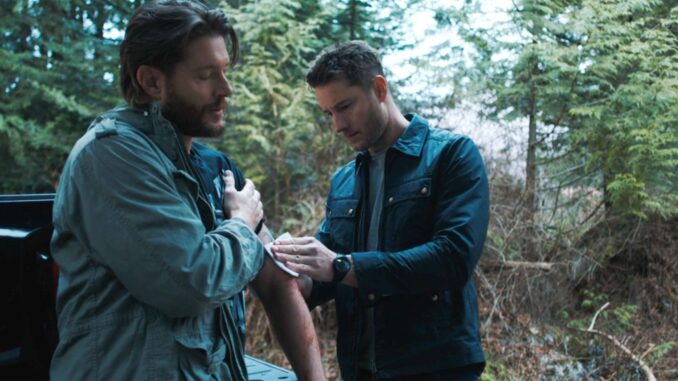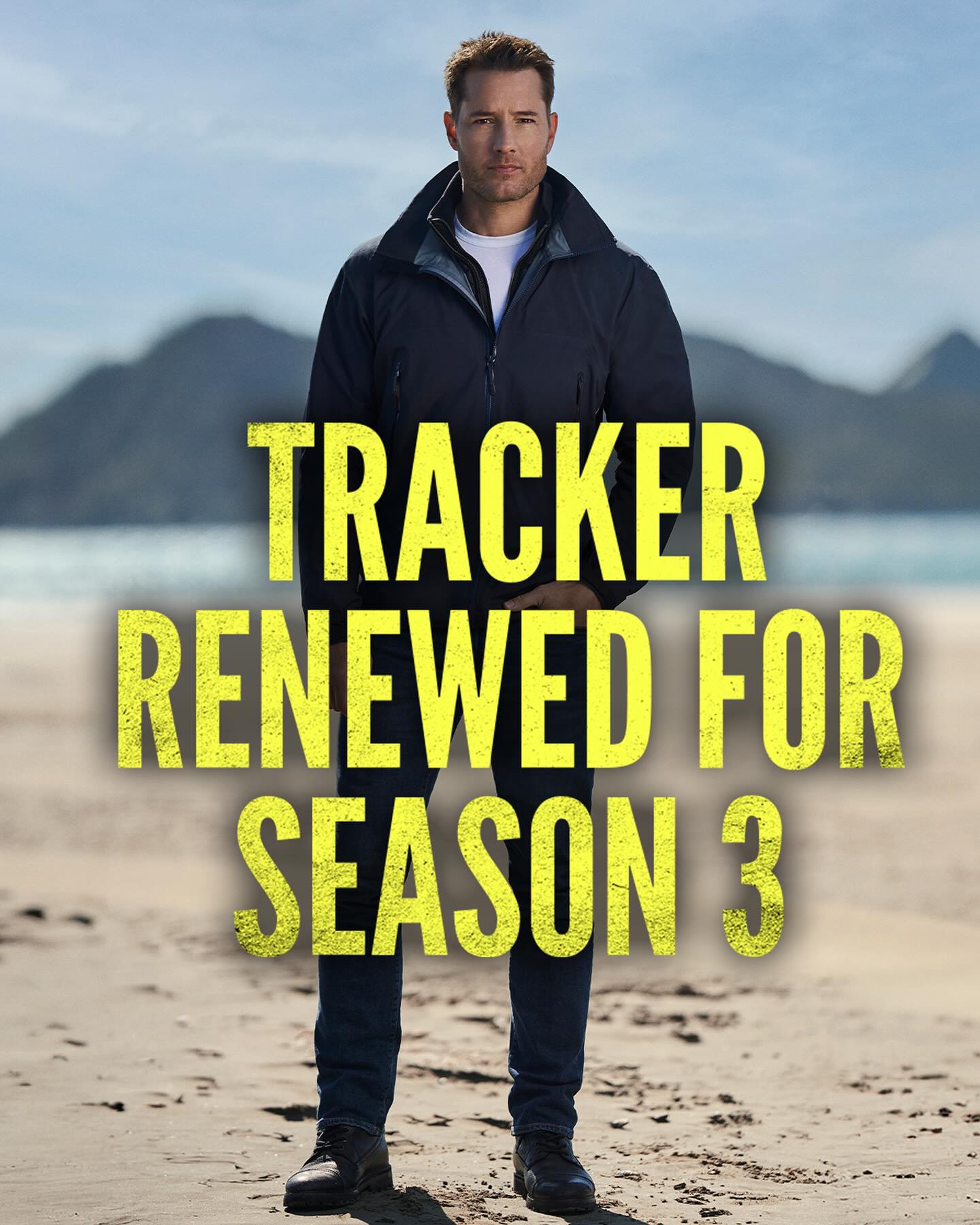
The Tracker season 1 finale introduced Tracker’s most interesting character yet, Colter’s brother, Russell (Jensen Ackles). The brothers reunited after years of Colter believing Russell killed their father. They ultimately reconciled after Russell finally revealed to Colter exactly what he saw that night, indicating that someone else was involved, but he didn’t know who. Unfortunately, that was all we got. Season 2 began with a time jump, causing the show to lose its momentum for any story related to Colter’s past. This is something that simply cannot happen in season 3. After the season 1 finale, it was like Colter stopped looking for clues about his father’s life and death until it felt more convenient to pick it back up.
Despite the lingering questions and mysteries left over from the Tracker season 2 finale, the show is finally starting to gain momentum when it comes to the Shaw family’s history, and it’s time we got some answers instead of more questions. A time jump would just derail the central mystery of what happened to Ashton Shaw again, and that would be an infuriating mistake to see repeated. After the season 1 finale, it was like Colter stopped looking for clues about his father’s life and death until it felt more convenient to pick it back up. To maintain audience interest, Tracker season 3 will need to pick up right where it left off, or at least close to it.
If you’re a fan of Tracker, you’ve probably been biting your nails waiting for Season 3. But here’s a hot take: the show must not start with a time jump. Time jumps can feel like a cheat — a shortcut that robs the audience of emotional depth and clarity. In this article, we’ll break down why starting Tracker Season 3 with a time jump would be a risky move and how the showrunners can keep the momentum alive without losing viewers in the process.
What Is a Time Jump and Why Does It Matter?
A time jump is a narrative technique where the story suddenly skips ahead, often by months or years, leaving gaps in the storyline. It’s like fast-forwarding through a movie and then having to piece together what you missed. While time jumps can refresh a story, they can also confuse and alienate fans.
Time Jumps in TV: A Double-Edged Sword
Shows like Lost and Game of Thrones have used time jumps effectively — but it’s a gamble. Do it wrong, and you lose connection with your characters. Do it right, and you keep the plot fresh and exciting.
Why Fans Hate Time Jumps: Emotional Disconnect
Fans invest in characters’ journeys. When a show suddenly jumps ahead, it can feel like an emotional slap in the face.
-
Missing key moments: Viewers don’t see important character developments.
-
Lost continuity: The flow of the story breaks, making it harder to follow.
-
Attachment issues: You lose the small moments that make characters relatable.
Tracker’s Strength Lies in Its Slow Burn
What makes Tracker so compelling is its steady pacing. Each episode carefully builds tension, revealing layers of characters’ pasts and motivations.
Why a Time Jump Could Kill the Slow Burn
Jumping ahead would throw away all that groundwork. Instead of savoring every twist, viewers would be forced to catch up quickly, losing that immersive experience.
The Risks of Alienating the Audience
TV is all about loyalty. Fans who feel lost or ignored might tune out — and that’s the last thing Tracker needs.
-
Viewer drop-off: Confusing plots lead to frustrated fans.
-
Negative buzz: Social media will explode with complaints.
-
Ratings hit: Networks notice when viewers don’t come back.
How to Keep Season 3 Engaging Without a Time Jump
There’s no need for a big leap forward to ramp up excitement. Here’s how Tracker can keep things fresh:
1. Dive Deeper Into Character Arcs
Explore what’s happening right now. Fans want to see emotional growth, not time skips.
2. Introduce New Threats Gradually
Add fresh challenges that fit naturally into the story timeline.
3. Use Flashbacks, Not Time Jumps
Flashbacks offer context without losing the main storyline’s continuity.
Examples of Shows That Nailed It Without Time Jumps
-
Breaking Bad: Slow, methodical buildup kept fans hooked without skipping ahead.
-
Stranger Things: Kept viewers close to the characters’ immediate experiences.
-
The Crown: Used flashbacks to fill gaps rather than jumping ahead abruptly.
How a Time Jump Could Affect Key Characters in Tracker
Imagine losing the chance to see subtle changes in fan favorites like the protagonist’s emotional struggles or the villain’s descent into darkness. Time jumps erase these moments.
Storytelling: The Heartbeat of Tracker
The show’s pacing and storytelling style are like a heartbeat—consistent, deliberate, and engaging.
-
Jumping ahead is like skipping beats, making the story feel disjointed.
-
Keeping a steady rhythm builds anticipation and emotional payoff.
Viewer Expectations: Why Consistency Wins
Fans expect a certain rhythm from Tracker — not just in pacing, but in how the story unfolds.
-
A time jump disrupts expectations and risks losing trust.
-
Consistency keeps fans invested and talking about the show.
What Do Critics Say About Time Jumps?
Critics often point out that time jumps can be a lazy storytelling device if not handled carefully. They stress the importance of narrative coherence and emotional engagement—both things Tracker excels at.
Could a Time Jump Work If Done Right?
Sure, but it requires precision and care:
-
Clear explanation for the jump
-
Emotional closure for the skipped period
-
Seamless integration with existing plotlines
Why Fan Theories Should Not Force a Time Jump
Fans love to speculate, but pushing for a time jump just because it sounds dramatic isn’t always smart storytelling.
The Role of Showrunners: Protecting the Story’s Integrity
The creators of Tracker have a responsibility to maintain the narrative’s integrity. Time jumps might seem tempting for drama but could do more harm than good.

What’s Next for Tracker Season 3?
Keeping the story grounded will let the show:
-
Build tension organically
-
Develop characters fully
-
Deliver satisfying plot twists
Conclusion: Say No to Time Jumps in Tracker Season 3
Starting Tracker Season 3 with a time jump is a risky shortcut that threatens to disrupt the emotional connection and storytelling flow fans cherish. The show’s slow burn and deep character development deserve a patient and consistent narrative. Instead of rushing forward, the creators should keep the story grounded, letting tension and drama grow naturally.
